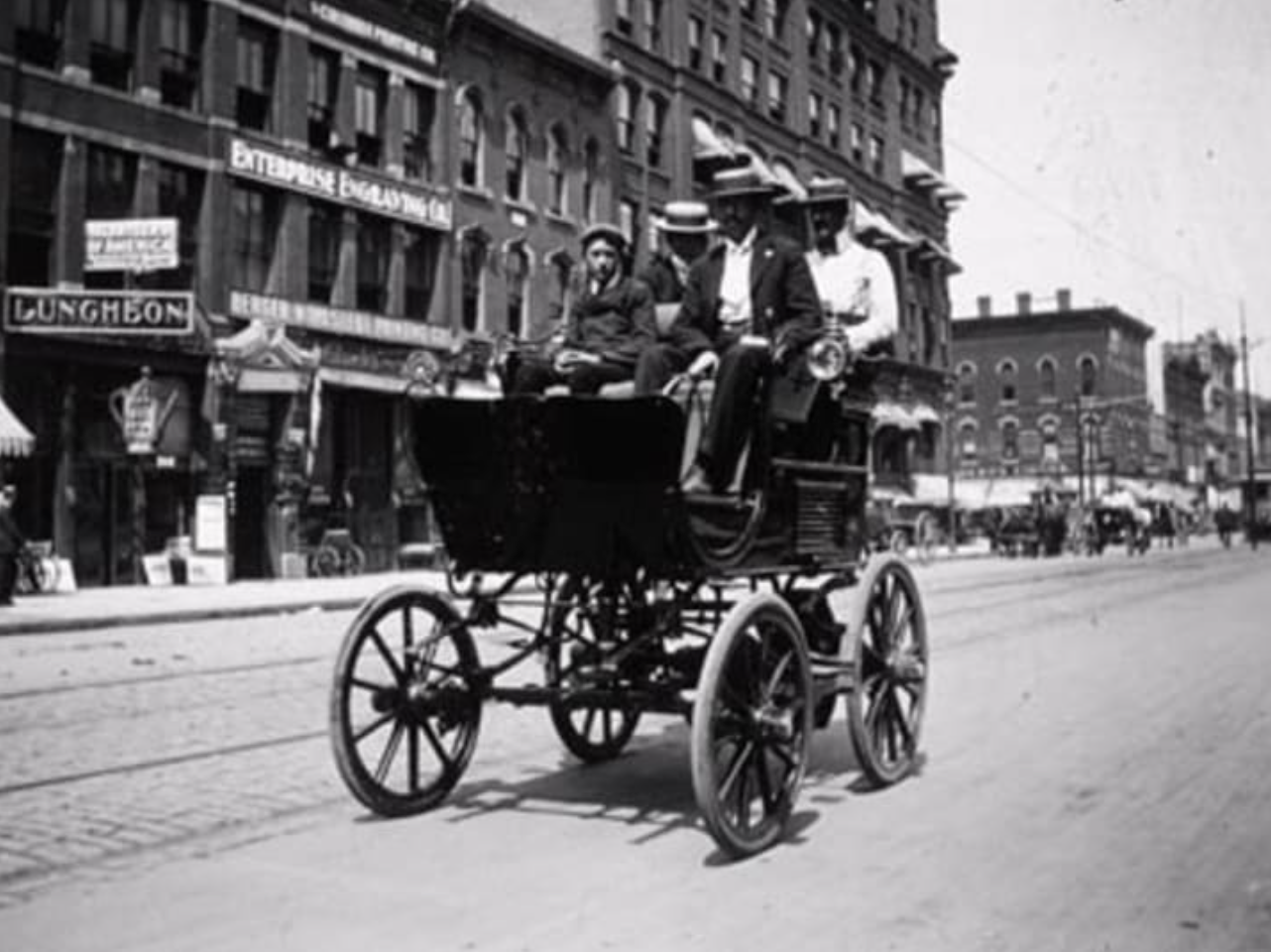EV'S ARE HERE TO STAY
Let’s make one thing abundantly clear. Electric vehicles (Evs) are the future. They are unequivocally better for the environment, and with the technology constantly advancing, they are performing on par or better than their gas-powered counterparts. I absolutely love exploring LA’s urban jungle in my Nissan Leaf, and with zero emissions, special parking benefits and access to the carpool lane, the perks are hard to beat.
That said, the adoption of EVS has been unenthusiastically slow (especially in places not named California), and it is even more dramatic when you realize how long EVs have been in existence. The history of electric vehicles (EVs) in this country has a complicated and frustrating past, and so let’s take a closer look at their origins.
America has had an on and off again relationship with EVs since the late 19th century (yes, you read that correctly). The first electric vehicle appeared in the US in 1889 and grew in popularity in urban cities because of its lack of emissions. In fact, in the first decade of the 20th century, electric cars made up ⅓ of the total cars in America. For reference, today’s electric fleet accounts for less than 2% of all vehicles.
One of the first EVs ever built by English inventor Thomas Parker in 1884
Biden has promised to accelerate EVs a few different ways such as adding more than 500,000 new public charging stations by the end of 2030, replacing every federal vehicle with Us-built EVs (645,000 vehicles) and reinstalling the full EV tax credit to incentive consumers.
Despite this push by automakers and the government, there is still skepticism from critics of the EV movement. They claim that EVs aren’t actually better for the environment because the electricity used to charge them still comes from fossil fuel, thus canceling out any positive environmental impact, but much of this is misinformation spread by the oil industry and their funded studies.
However, the movement stalled when Ford’s gas-powered Model T became more readily available and affordable in 1910. By 1935, EVs had all but disappeared, and cheap Texas oil and the prevalence of gas stations across the country made owning a gas-powered car the way to go. Even when gas prices spiked in the 60s and 70s and automakers began to reevaluate the electric cars, they still didn’t catch on because they lacked the same performance and range.
But EVs made yet another resurgence in the 90s, spurred on by new industry and environmental regulations. New electric car manufacturers sprang up and traditional automakers began producing electric models ready for the street. By the early 2010s, better charging station infrastructure began popping up around the country and it is only going to expand under the Biden administration.
EV charging station
Here’s the reality:
1. Our electric grid is getting cleaner. Coal now makes up only 30% of our electricity (down from 50% over the last ten years) and wind and solar now account for 10%. This means that driving an EV will only get cleaner over time
2. Emissions created by driving an EV depends on where you live, but on average, an EV is equivalent to a gas-powered car that gets 80 MPG
3. EVs produce fewer direct emissions. Moving pollution out of cities where humans live and breath to a central power plant reduces smog pollution and improves air quality
4. If the entire US automobile fleet went electric, cost savings would reach an estimated $70 billion
These are encouraging statistics that will only progress over time as the technology advances, but there is still work to be done. Aside from improving the performance of the car itself, automakers must also ensure that the materials used to create EV batteries (lithium, cobalt and nickel) are harvested sustainably and ethically. Many of these resources are mined in areas outside of the US, and it is vital that we don’t harm the environment and people in these areas in order to preserve our own.
With any new technology, the ethics and environmental concerns should be weighed equally, but the data clearly supports the notion that EVs are the future of transportation. Nissan understood this more than ten years ago when they first launched the Leaf, and as a first time EV driver, I am confident I will never go back to gas.



